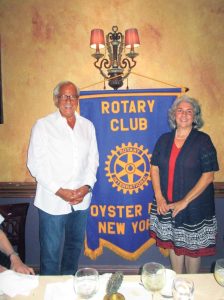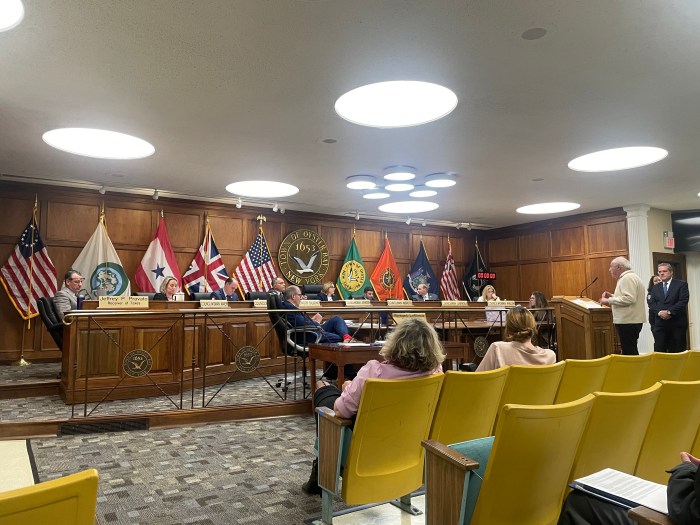
The new Raynham Hall Museum director of education, Claire Bellerjeau, was the guest speaker at a recent Rotary Club of Oyster Bay meeting and her knowledge of the area intrigued club members.
“It’s wonderful to be back, living in Oyster Bay, where history is all around us,” said Bellerjeau.
Bellerjeau has been the museum’s historian for several years and has been researching the Townsends on her own for over a decade. She is passionate in her love of Oyster Bay history and is filling in the blanks with true stories, where “fake news” (formerly known as gossip) has often been taken as fact.
A fact she has been taking notice of is that between 1790-1810, in the Town of Oyster Bay, 16 percent of residents were African Americans, both free and enslaved. She found the information in the census records and said in those records race was not recorded as a column.
“You have to read the information carefully to understand the entries,” she said.
She will be demonstrating that skill at a program jointly presented by Raynham Hall and the Oyster Bay Historical Society next spring.
She is also creating a program to bring fifth-grade students to the museum to learn about the slavery in Oyster Bay and the enslaved people that were owned by the Townsends.
Currently, thousands of fourth-grade children come to the museum to study the Revolutionary War, during the times when Samuel Townsend was a town leader: he was town clerk, justice of the peace and a member of the New York Provincial Continental Congress. He was also a captain of industry and built five sailing vessels here in Oyster Bay: sloops and brigantines that traveled to the Caribbean and back and to England carrying furniture, fabrics, wine and more.
“At Raynham Hall we have some if the records of the ships being built,” said Bellerjeau. “I have found some neat ads for the brig Sally.”
President Rich Elias was so fascinated with her knowledge of Colonial America, he said, “We have to have you come back another time.”



























